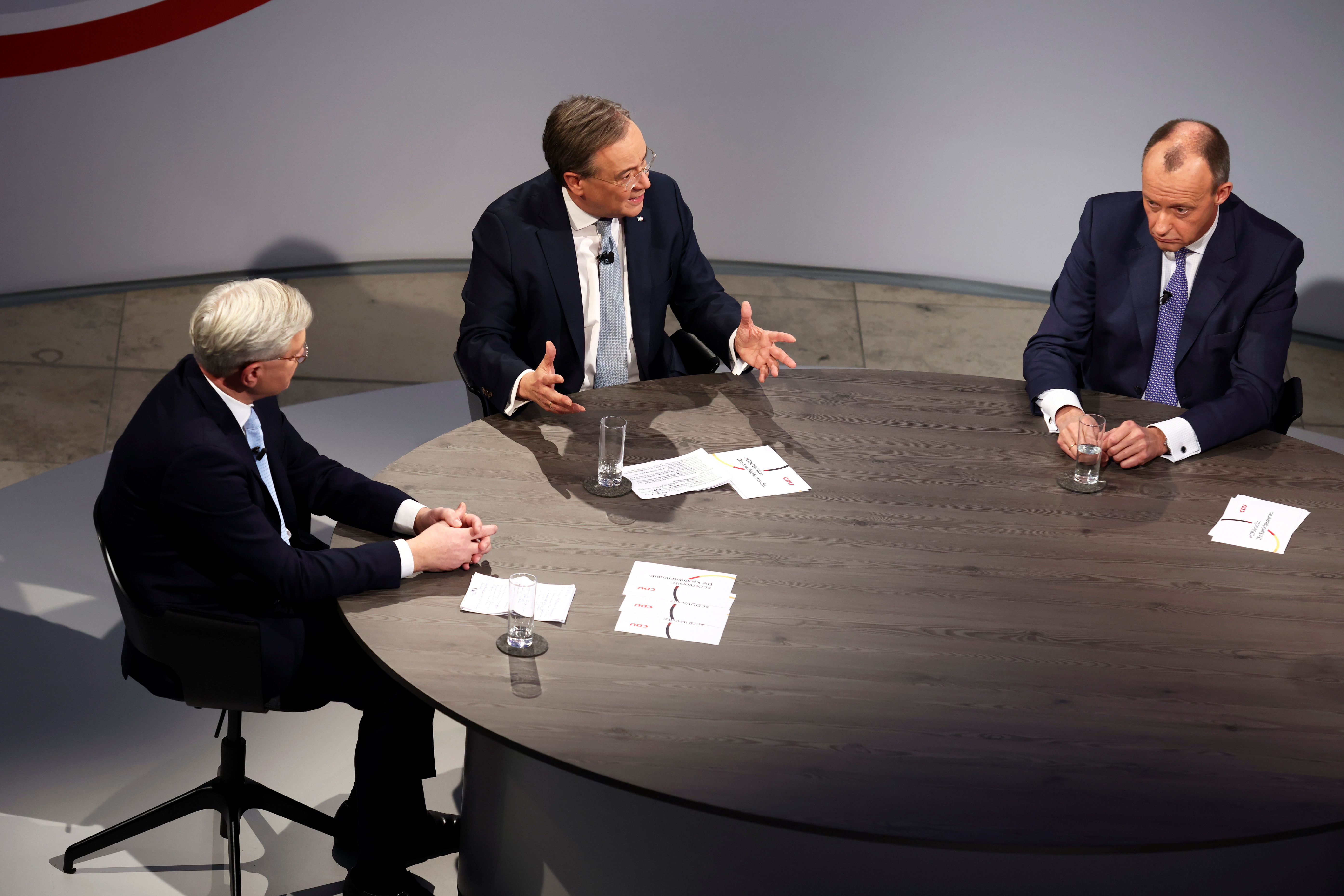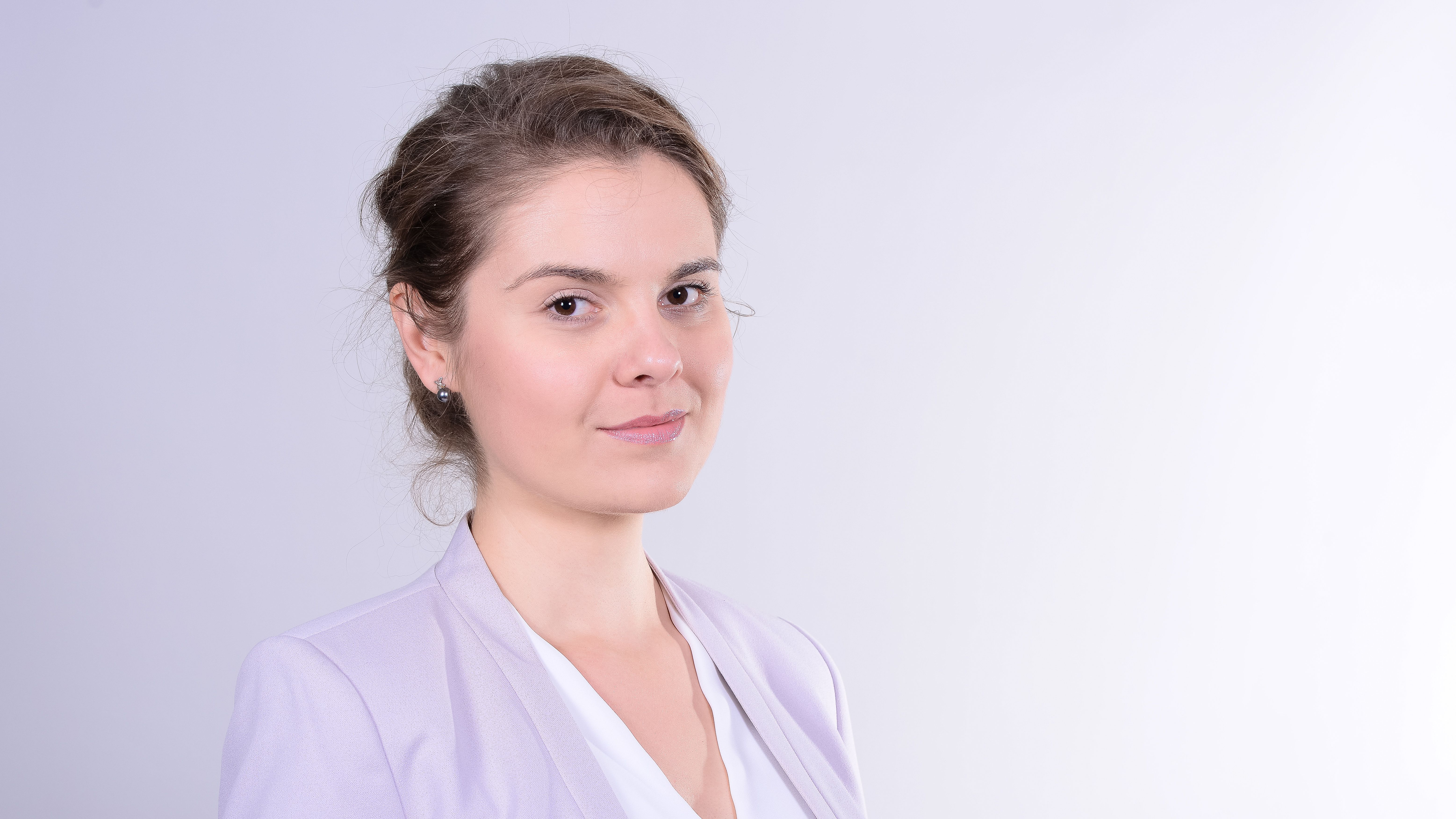
During the party’s virtual congress on 16 January, 1,001 CDU delegates will elect a new chair via an online vote, which will be confirmed by postal vote on 22 January. The new leader will replace Annegret Kramp-Karrenbauer, who announced her resignation as a result of the intra-party crisis in February 2020. The candidates are Friedrich Merz, former head of the CDU/CSU faction in the Bundestag, Armin Laschet, Prime Minister of North Rhine-Westphalia, and Norbert Röttgen, head of the parliamentary foreign affairs committee.
The priority of the leader of the Christian Democrats will be to strengthen the party’s position in the next regional elections, win the Bundestag election again in September, and quickly build a new coalition. However, the CDU’s goals go beyond this year’s election cycle. The new leader will be tasked with securing the status of the Christian Democrats as the dominant party on the German political scene, and defining their identity after Merkel’s 16-year rule.
CDU Challenges
The problem that the new leader will have to deal with is the progressive outflow of the Christian Democratic electorate. Although it has ruled since 2005, and the actions of Angela Merkel’s government regarding the COVID-19 pandemic have helped to rebuild support for the party in public opinion polls, the federal and state elections have recently indicated a decline in its popularity. During the 2019 elections to the European Parliament, it recorded its worst ever result (28.9%). The CDU, like most German parties, is also facing a decline in membership. There are currently 405,000 members, more than 374,000 less than in 1990. In 2019, only 13,000 people joined the party, significantly fewer than a decade ago (for example, 20,300 joined in 2008).
The decline in support and the prospect of shrinking membership are related to a dilemma about the party’s ideological direction. On the one hand, Merkel’s Christian Democrats embraced some left-wing postulates, such as social reform, the abolition of compulsory military service and the abandonment of nuclear energy, which made the party more attractive to the centre-left electorate (for example, the SPD lost 15.4% of their votes to the Christian Democrats in the last parliamentary election). On the other hand, the actions of Merkel’s government in the face of the refugee crisis and the programmatic shift towards social democracy cost the Christian Democrats the support of part of the conservative electorate, who cast their votes for the far-right Alternative for Germany (AfD). In the 2017 Bundestag election, 24.8% of former Christian Democrat supporters switched to the AfD.
In the coming months, the party will also face a decision on the appointment of a Christian Democratic candidate for the position of chancellor in the upcoming Bundestag elections. The candidate has most often been the chair of the CDU, but the high popularity of Markus Söder, the leader of the Bavarian CSU, who is part of a joint faction in the Bundestag with the CDU, gives him a chance to be nominated. The separation of the functions of the German chancellor from the head of the CDU would, however, be a problem for the successor of Kramp-Karrenbauer, as it blurs the issue of political responsibility for the government’s actions and may generate internal disputes. In addition, the new leader will have to take a stance on the achievements of Merkel’s government, including such controversial issues as migration, energy and social policy. Party consolidation will also be an important issue. This will include, among other things, gaining the support of some CDU activists in the eastern federal states for the creation of local coalitions with the AfD, which is opposed by the federal management.
The Christian Democrats after Merkel
The proposals of the three candidates suggest answers to the CDU’s challenges. Röttgen focuses on strengthening the status of the CDU as a centre party that distances itself from all extremist movements, especially from the far-right represented by the AfD. At the same time, he proposes to open the party and state institutions to dialogue with citizens, which would convince disappointed Christian Democrats to vote for the party again. Röttgen’s weak political base, however, is a problem, with his candidacy has failing to receive the support of any major faction within the CDU. Additionally, he does not currently hold an important position in federal or regional authorities.
Laschet is the candidate identified with the continuation of the party’s current course. In his opinion, the CDU’s response to competition from the AfD and left-wing parties should be to eliminate social and economic polarisation. This will be achieved by the digitisation of Germany, lower tax rates for poorer regions, and linking climate policy with economic development. Laschet is supported by the leadership of North Rhein-Westphalia, the richest German region (21.2% of GDP in 2019) and the support of the social wing of the CDU. However, the controversy surrounding his actions to tackle the COVID-19 pandemic in the state is a problem. The controversy arises from, among other, things, opposition to the adoption of restrictions, and arguments for those already in place to be lifted quickly.
Merz distances himself the most from the achievements of the former Christian Democrat leader. His proposed “CDU exit from Angela Merkel’s shadow” would allow him to regain the support of the Christian Democrats who defected to the AfD. This would mean, among other things, revising and tightening Germany’s current migration and asylum policy. As a representative of economic liberals in the CDU, Merz opposes tax increases and the introduction of new social levies to cover the costs incurred as a result of COVID‑19. Merz is an advocate of a quick return to the policy of a balanced budget (“black zero”). Although, like Röttgen, he does not hold a position in federal or provincial authorities, he is most popular among party members (45%) and CDU structures in the east of Germany. The party's youth party has also declared support for his candidacy.
Conclusions
The choice of a strong leader is one of the factors that may be the difference between defeat or victory for the Christian Democrats in the upcoming election cycle. The key to success is to ensure the new leader has a strong position within the grouping. This increases the likelihood that the successful candidate would also be nominated for chancellor. If the CDU wins, combining both functions—head of the party and the government—would avoid a redistribution of power, especially in terms of the COVID-19 pandemic. The shape of the new coalition at the federal level will also depend on the decision of the party’s congress. Success for Laschet or Röttgen will increase the chances of building a government with the Greens, who are currently ranked second in public opinion polls. A victory for Merz would increase the risk of prolonging the negotiations and creating a fragile coalition.
The election of the CDU leader will also affect the development of the broader German political scene. The programmatic shift of the party to the right may contribute to the marginalisation of the AfD and allow the Greens to win over more left-leaning CDU voters. Should the party continue on its current course, it is more likely that conservative members will form a new party in the long run.
The election of a new chair may increase the CDU’s openness to initiatives to deepen European integration in the areas of security and foreign policy. A positive signal for Poland is the continuation of the Bundeswehr’s expenditure increase, announced by the candidates, and efforts to renew transatlantic relations and strengthen cooperation in areas such as climate, trade and relations with China. However, a rapid departure from the current policy towards Russia should not be expected. All candidates have criticised that country’s aggressive policy, and only Röttgen supports Germany's withdrawal from the construction of the Nord Stream 2 gas pipeline.




